
Kirk Lee Hammett is an American musician who has been the lead guitarist and a contributing songwriter for heavy metal band Metallica since 1983. Before joining Metallica, he formed and named the band Exodus. In 2003, Hammett was ranked 11th on Rolling Stone's list of The 100 Greatest Guitarists of All Time. In 2009, Hammett was ranked number 15 in Joel McIver's book The 100 Greatest Metal Guitarists.

Edward Kennedy "Duke" Ellington was an American jazz pianist, composer, and leader of his eponymous jazz orchestra from 1923 through the rest of his life. Born and raised in Washington, D.C., Ellington was based in New York City from the mid-1920s and gained a national profile through his orchestra's appearances at the Cotton Club in Harlem. A master at writing miniatures for the three-minute 78 rpm recording format, Ellington wrote or collaborated on more than one thousand compositions; his extensive body of work is the largest recorded personal jazz legacy, and many of his pieces have become standards. He also recorded songs written by his bandsmen, such as Juan Tizol's "Caravan", which brought a Spanish tinge to big band jazz. At the end of the 1930s, Ellington began a nearly thirty-year collaboration with composer-arranger-pianist Billy Strayhorn, whom he called his writing and arranging companion. With Strayhorn, he composed multiple extended compositions, or suites, as well as many short pieces. For a few years at the beginning of Strayhorn's involvement, Ellington's orchestra featured bassist Jimmy Blanton and tenor saxophonist Ben Webster and reached a creative peak. Some years later following a low-profile period, an appearance by Ellington and his orchestra at the Newport Jazz Festival in July 1956 led to a major revival and regular world tours. Ellington recorded for most American record companies of his era, performed in and scored several films, and composed a handful of stage musicals.
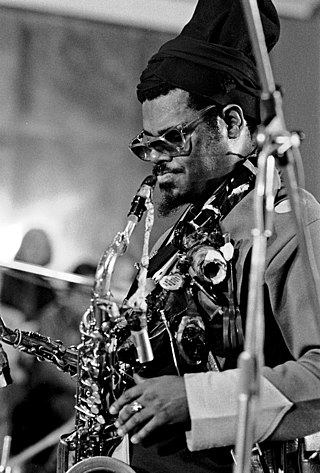
Rahsaan Roland Kirk, known earlier in his career simply as Roland Kirk, was an American jazz multi-instrumentalist who played tenor saxophone, flute, and many other instruments. He was renowned for his onstage vitality, during which virtuoso improvisation was accompanied by comic banter, political ranting, and the ability to play several instruments simultaneously.

William James "Count" Basie was an American jazz pianist, organist, bandleader, and composer. In 1935, he formed the Count Basie Orchestra, and in 1936 took them to Chicago for a long engagement and their first recording. He led the group for almost 50 years, creating innovations like the use of two "split" tenor saxophones, emphasizing the rhythm section, riffing with a big band, using arrangers to broaden their sound, and others. Many musicians came to prominence under his direction, including the tenor saxophonists Lester Young and Herschel Evans, the guitarist Freddie Green, trumpeters Buck Clayton and Harry "Sweets" Edison, plunger trombonist Al Grey, and singers Jimmy Rushing, Helen Humes, Thelma Carpenter, and Joe Williams.

Charles Henry Christian was an American swing and jazz guitarist.
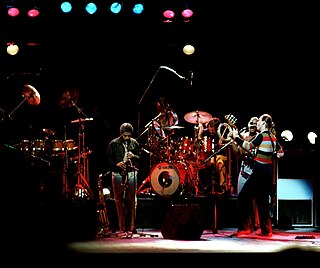
Weather Report was an American jazz fusion band active from 1970 to 1986. The band was founded in 1970 by Austrian virtuoso keyboardist Joe Zawinul, American saxophonist Wayne Shorter, Czech bassist Miroslav Vitouš, American drummer and vocalist Alphonse Mouzon as well as American percussionists Don Alias and Barbara Burton. The band was initially co-led by co-frontmen Joe Zawinul and Wayne Shorter but, subsequently as the 1970s progressed, Joe Zawinul largely became the sole musical leader of the group. Other prominent members at various points in the band's lifespan included Jaco Pastorius, Alphonso Johnson, Victor Bailey, Chester Thompson, Peter Erskine, Airto Moreira, and Alex Acuña. Throughout most of its existence, the band was a quintet consisting of Zawinul, Shorter, a bass guitarist, a drummer, and a percussionist.
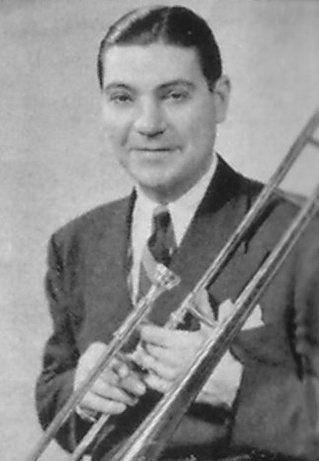
Weldon Leo "Jack" Teagarden was an American jazz trombonist and singer. According to critic Scott Yannow of Allmusic, Teagarden was the preeminent American jazz trombone player before the bebop era of the 1940s and "one of the best jazz singers too". Teagarden's early career was as a sideman with the likes of Paul Whiteman and lifelong friend Louis Armstrong.
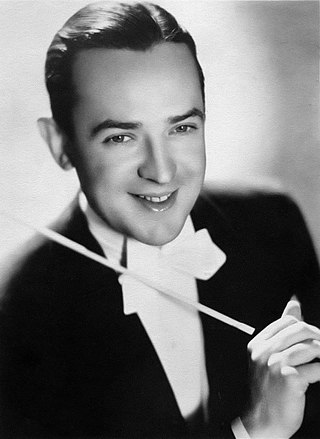
James Francis Dorsey was an American jazz clarinetist, saxophonist, composer and big band leader. He recorded and composed the jazz and pop standards "I'm Glad There Is You " and "It's The Dreamer In Me". His other major recordings were "Tailspin", "John Silver", "So Many Times", "Amapola", "Brazil ", "Pennies from Heaven" with Bing Crosby, Louis Armstrong, and Frances Langford, "Grand Central Getaway", and "So Rare". He played clarinet on the seminal jazz standards "Singin' the Blues" in 1927 and the original 1930 recording of "Georgia on My Mind", which were inducted into the Grammy Hall of Fame.

Frederick Dewayne Hubbard was an American jazz trumpeter. He played bebop, hard bop, and post-bop styles from the early 1960s onwards. His unmistakable and influential tone contributed to new perspectives for modern jazz and bebop.
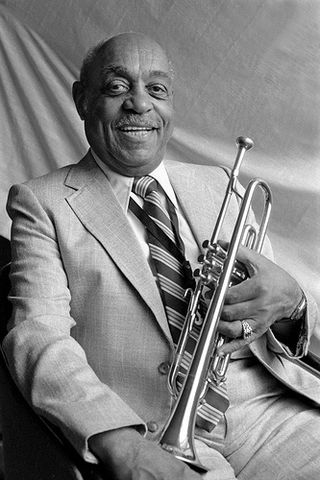
Bennett Lester Carter was an American jazz saxophonist, clarinetist, trumpeter, composer, arranger, and bandleader. With Johnny Hodges, he was a pioneer on the alto saxophone. From the beginning of his career in the 1920s, he worked as an arranger including written charts for Fletcher Henderson's big band that shaped the swing style. He had an unusually long career that lasted into the 1990s. During the 1980s and 1990s, he was nominated for eight Grammy Awards, which included receiving a Lifetime Achievement Award.

Andrew Dewey Kirk was an American jazz saxophonist and tubist who led the Twelve Clouds of Joy, a band popular during the swing era.

Malcolm Earl "Mal" Waldron was an American jazz pianist, composer, and arranger. He started playing professionally in New York in 1950, after graduating from college. In the following dozen years or so Waldron led his own bands and played for those led by Charles Mingus, Jackie McLean, John Coltrane, and Eric Dolphy, among others. During Waldron's period as house pianist for Prestige Records in the late 1950s, he appeared on dozens of albums and composed for many of them, including writing his most famous song, "Soul Eyes", for Coltrane. Waldron was often an accompanist for vocalists, and was Billie Holiday's regular accompanist from April 1957 until her death in July 1959.
Andrew Weiss is an American musician, composer, audio engineer and Grammy-winning record producer.
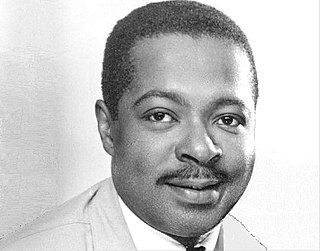
Wynton Charles Kelly was an American jazz pianist and composer. He is known for his lively, blues-based playing and as one of the finest accompanists in jazz. He began playing professionally at the age of 12 and was pianist on a No. 1 R&B hit at the age of 16. His recording debut as a leader occurred three years later, around the time he started to become better known as an accompanist to singer Dinah Washington, and as a member of trumpeter Dizzy Gillespie's band. This progress was interrupted by two years in the United States Army, after which Kelly worked again with Washington and Gillespie, and played with other leaders. Over the next few years, these included instrumentalists Cannonball Adderley, John Coltrane, Hank Mobley, Wes Montgomery, and Sonny Rollins, and vocalists Betty Carter, Billie Holiday, and Abbey Lincoln.
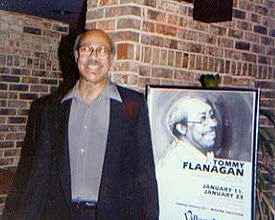
Thomas Lee Flanagan was an American jazz pianist and composer. He grew up in Detroit, initially influenced by such pianists as Art Tatum, Teddy Wilson, and Nat King Cole, and then by bebop musicians. Within months of moving to New York in 1956, he had recorded with Miles Davis and on Sonny Rollins' album Saxophone Colossus. Recordings under various leaders, including Giant Steps of John Coltrane, continued well into 1962, when he became vocalist Ella Fitzgerald's full-time accompanist. He worked with Fitzgerald for three years until 1965, and then in 1968 returned to be her pianist and musical director, this time for a decade.

Harold Mabern Jr. was an American jazz pianist and composer, principally in the hard bop, post-bop, and soul jazz fields. He is described in The Penguin Guide to Jazz Recordings as "one of the great post-bop pianists".

Lonnie Liston Smith Jr. is an American jazz, soul, and funk musician who played with such jazz artists as Pharoah Sanders and Miles Davis before forming Lonnie Liston Smith and the Cosmic Echoes, recording a number of albums widely regarded as classics in the fusion, smooth jazz and acid jazz genres.

John Kirby, was an American jazz double-bassist, who also played trombone and tuba. In addition to sideman work, Kirby is remembered for leading a successful chamber jazz sextet in the late 1930s and early 1940s, which scored several hit songs including "Loch Lomond" and the debut recording of "Undecided", a jazz standard. He is perhaps the first musician in the chamber jazz genre.

William Johnson Coleman was an American jazz trumpeter.
Harold "Scrappy" Lambert was an American dance band vocalist who appeared on hundreds of recordings from the 1920s to the 1940s.



















